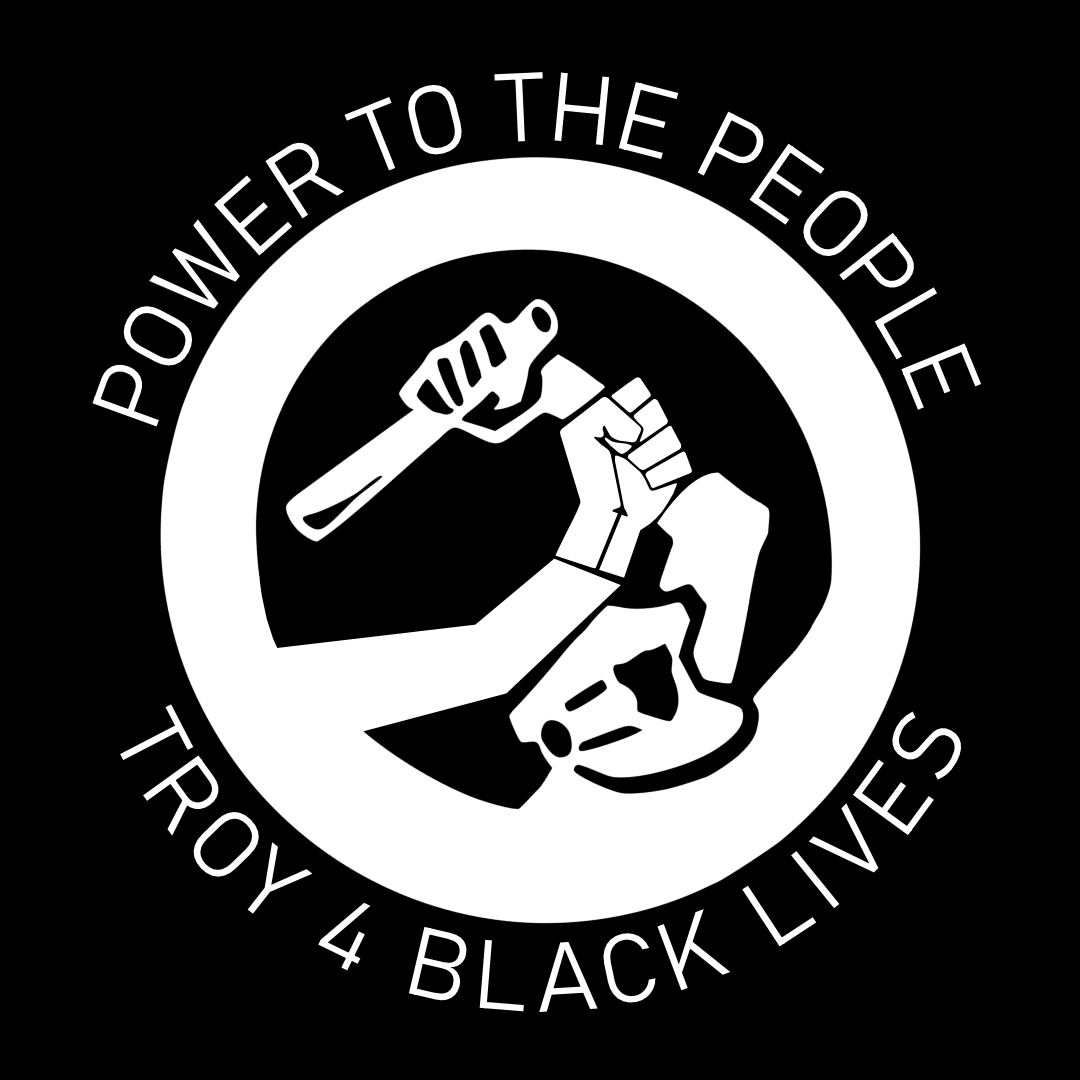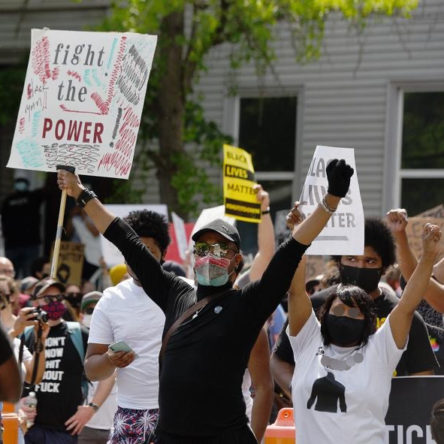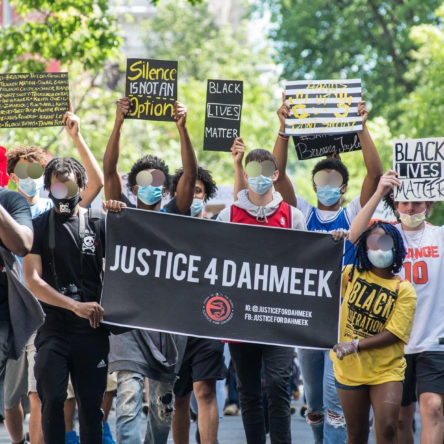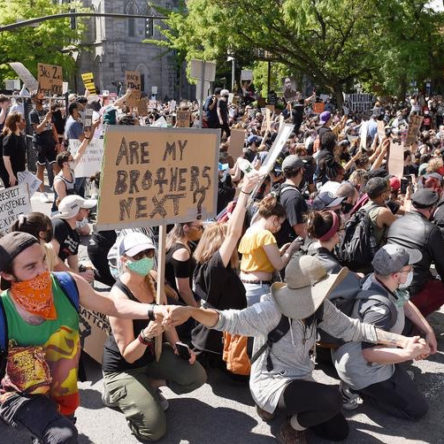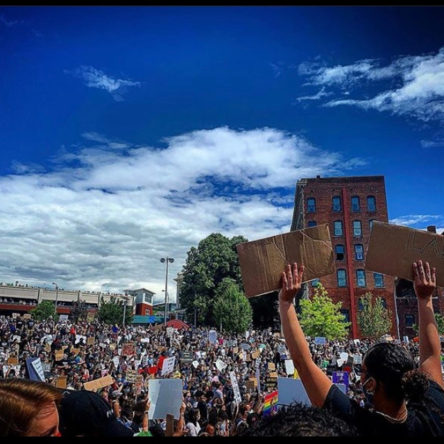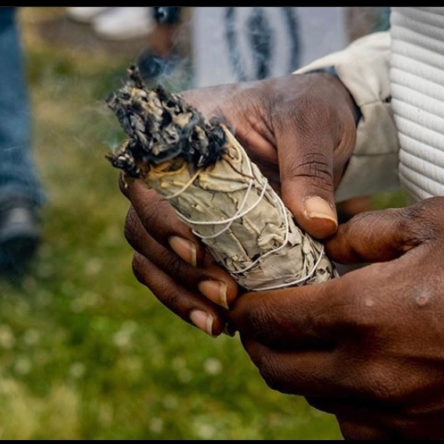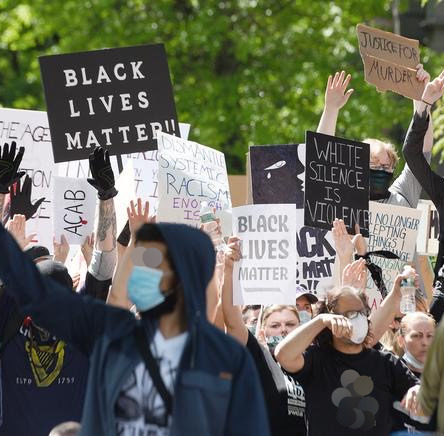About Us
Troy 4 Black Lives, formerly known as Justice for Dahmeek, is an intergenerational collective of volunteer organizers from Troy, NY who formed to demand accountability for the Troy Police shooting of Dahmeek McDonald in August of 2017, as well as to continue to expose and denounce the police murder and official cover-up in the murder of Edson Thevenin in 2016.
We have been working for years to challenge the violence, brutality, and lethal force of the Troy Police Department and local officials against ALL Black Diasporic lives, such as Black LGBTQIA folx, Black people with disabilities, Black youth, Black women, and Black elderly.
We were also the primary organizers for the Troy Rally for Black Lives on June 7th, 2020, a historic event that brought 11,000 people together peacefully in Troy to celebrate and affirm Black life.
Our Demands
Since the formation of Justice for Dahmeek we have called for a measurable commitment to police accountability and justice that protects the citizens, visitors and neighbors of Troy NY.
- COPS STOP KILLING US & OUR CHILDREN
- A newly formed civilian review board with a) subpoena power and b) representation of no less than 60% of people most impacted by violence and police violence (BIPOC at the intersection of LGBTQIA, Young People, People with disabilities, Our formerly incarcerated peoples.)
- A full and impartial investigation of every instance of use of deadly force by a police officer, whether or not it results in a death (this includes injury) and whether or not the victim is alleged to have been armed. Where there is evidence of abuse, a vigorous grand jury presentation and prosecution.
- The disentanglement of county government with ICE. And making Troy a Sanctuary City.
- The appointment of the Attorney General (by Executive Order or legislation) as an independent investigator and prosecutor in all cases of the use of deadly force by a police officer, whether or not the victim is alleged to have been armed, and whether or not the victim survives
- The exploration and creation of diversion programs away from criminal justice involvement to community-based treatment alternatives, especially for youth, the mentally ill, and in cases involving drugs or substance abuse and sex work, with a view to reducing unnecessary incarceration which disproportionately impacts economically expolited communities and specifically Black, Indigenous and People of Color.
